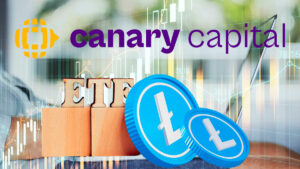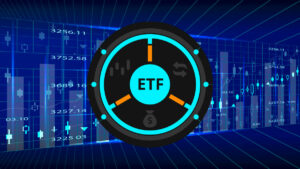Cardano (ADA) creator Charles Hoskinson has strongly denied the United States Securities and Exchange Commission’s (SEC) allegations that the Cardano network’s native ADA token is a security. His response came after lawyer and crypto enthusiast Bill Morgan took to Twitter to explain that adding functionality and marketing a product, as done with ADA, is not the same as selling a security.
The ongoing cryptocurrency war with the SEC is taking a turn for the worst as the American watchdog continues to target digital assets and crypto-focused companies. Recently, the SEC named several digital tokens including Cardano (ADA), Solana (SOL), and Polygon (MATIC) among many others as examples of securities being offered and traded on allegedly non-compliant crypto exchanges as part of its lawsuits against Binance and Coinbase.
The accusations did not sit well with the respective blockchain companies that have created the tokens with the companies slamming back the SEC and explaining why the digital tokens cannot be deemed as securities.
Why is ADA Not a Security?
On June 12, Hoskinson clarified that ADA is not a security under United States securities laws and has never been. He stated the Cardano project financing was done in Japan where no token was sold and instead vouchers were sold along with the pricing either in Japanese Yen or Bitcoin (BTC). In addition, Hoskinson argued that ADA was launched in 2017 as an airdrop, only two years after the voucher sale, citing the SEC’s allegations as having numerous factual errors. The Cardano founder tweeted,
“The financing was done in Japan, no ada was sold, only vouchers, marketing was in Japanese, priced in Yen and Bitcoin, and no one from the United States participated. Ada launched in 2017 as an airdrop two years after the voucher sale. The facts might be inconvenient to the SEC, but are facts.”
The financing was done in Japan, no ada was sold, only vouchers, marketing was in Japanese, priced in Yen and Bitcoin, no one from the United States participated. Ada launched in 2017 as an airdrop two years after the voucher sale. The facts might be inconvenient to the SEC, but…
— Charles Hoskinson (@IOHK_Charles) June 11, 2023
Hoskinson’s response came shortly after Morgan took to the micro-blogging platform to analyze why ADA cannot be considered as a security. The lawyer argued that adding functionality and marketing a product does not equate to selling a security. It is merely an effort to boost the product, improving its software application.
Morgan explained why ADA cannot qualify as a security comparing it to a smartphone. He claimed, as done with Cardano (ADA), adding some features or capabilities to make the product better does not deem the item as security. He added,
“Well if you do only those things you are not selling a security. You are just trying to improve your smartphone or software to stay competitive & increase sales. Unless the thing you are improving & adding functionality to its crypto, and then magically it becomes a security.”

Crypto Firms Fight Back Against SEC
This comes hot on the heels after Input Output Global (IOG), the developing firm behind the Cardano ecosystem, released a statement dismissing SEC’s claims that ADA is a security. As per the statement, IOG said the SEC’s filing is riddled with “numerous factual inaccuracies,” and went on to call the action “regulation by enforcement”, questioning the agency’s clarity in understanding blockchain technologies.
The Solana Foundation disagrees with the characterization of SOL as a security. We welcome the continued engagement of policymakers as constructive partners on regulation to achieve legal clarity on these issues for the thousands of entrepreneurs across the U.S. building in the…
— CETS
(@CetsNFT) June 10, 2023
Not just Cardano (ADA) developers. On Saturday, the Solana Foundation, a non-profit dedicated to the Solana (SOL) network also delivered a similar message citing it “disagrees with the characterization of SOL as a security.”
Furthermore, Paradigm, a crypto-focused venture capital firm criticized the US SEC’s attempt to alter the definition of exchange in context with the digital assets industry, last week. The VC firm sent the SEC secretary Vanessa Countryman, blasting the American watchdog’s attempt to redefine the term “exchange”, which seeks to fuse both decentralized exchanges (DEX) and decentralized finance (DeFi) into the definition.








